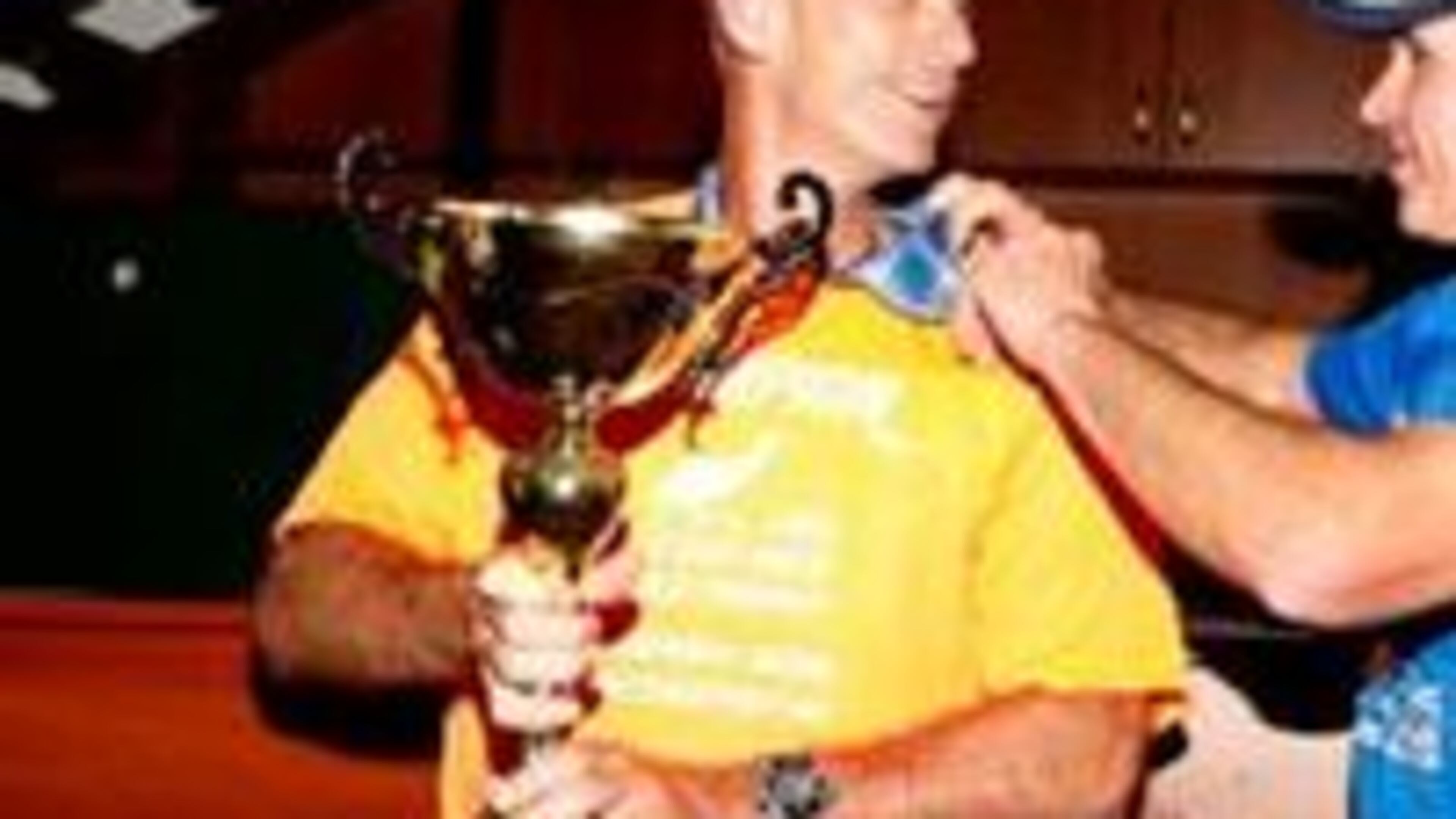Think a 10k is hard? Hoschton man ran a 975k!

Lots of novice runners are gearing up for the annual AJC Peachtree Road Race and, to them, a 10k probably seems a distance too far.
Then there’s Joe Fejes. He just ran a 975k.
That’s 606 miles.
In six days.
Put another way, Fejes, a 49-year-old corporate lawyer from Hoschton, ran about 100 a miles a day, every day, in a six-day-long race _ the equivalent of about four marathons a day for nearly a week. And lived to tell about it.
“People say this isn’t healthy. Hell, no,” said Fejes. “It’s like a boxing match. I do it for the challenge. I never said I was doing it for health.”
Fejes is an ultramarathoner, one of a relatively small group of distance driven runners who feel the further the better. The 6-day race has a long history that goes back at least to the 19th century, but there aren’t many around nowadays, in part because of the cost and effort to put such an event together.
Currently the American record holder among 6-day racers, Fejes broke his own previous mark of 580 miles during an international competition he won last month in Hungary. The world record is 644 miles.
In Hungary, Fejes was hoping to reach 621 miles. That would be 1,000 kilometers, an iconic number.
He didn’t quite make it.
“I was a little disappointed. I think I had it in me to that,” he said. “But it was very warm and I’m not very good in the warm, and that cost me.”
Fejes wasn’t exactly crawling, either. He estimated his pace at about 12 minutes per mile, when time for sleeping is not included. Not speedy for a runner, but quicker than walking. The course he covered was relatively flat, he said, and looped around scenic Lake Balaton. About 80 runners participated in the race and they came from all over the world.
When people hear what Fejes does, and what he did in Hungary, they naturally ask a lot of questions. Here are some of them, with his answers.
• Did he lose weight during the race? Yes, about 10-12 pounds, mostly muscle. He started the race at 156 pounds and weighed 146 afterwards, following a meal.
• What did he eat during the race? The energy gels that extreme athletes require, but many other things, too. Like 20 or 30 ice cream bars, cheeses, meat spreads such as goose liver, tomatoes, olives, pasta, soups, eggs and a jar of pickled herring. “I just got a craving for herring with sour cream,” he said. “That really hit the spot at the time.”
• Does he sleep, and how much? Of course. About four hours in a 24-hour period, not all at once. There may be a longer 90-minute nap and a few 10 and 30-minute naps as needed.
• Did he hurt? Not much, really. He had some tendinitis in his achilles and swollen feet.
• Is he a lifelong running fanatic? He ran in college at Emory, but only got into ultramarathoning after he hit his 40s and felt he was getting out of shape. He began gradually with 50-mile and 100-mile runs, then moved on up. “It seemed the longer the race, the more competitive I was,” he said.
• Does he have more running goals? He’d like to try for that magic 1,000 kilometers. But he’s got to train for it and he’s not a heavy trainer, normally. He’ll do maybe 50-90 miles a week.
• How long can he keep doing this? A while, if he wants. There were five 70-plus runners in Hungary, and they finished. You’re not as fast as you age, but you can make it.
• How does he keep from getting bored during a race, going round and round the course? He listens to music on his iPod, naturally, country or rock or whatever moves him.
• Surely there is some big prize money in this? No, other than what Fejes and his fellow ultramarathoners pay themselves to travel to the races.
• Does he get any help at a race? Who makes his food, monitors his health, that sort of thing? A friend and former ultramarathoner now living in Detroit, Mike Dobies, went with him to Hungary and operated as his aide, watching everything from Fejes’ running pace to his sleep requirements.
The final question, maybe the biggest one people have, is whether Fejes and his fellow ultramarathoners are simply mad. After all, why run four marathons a day for a week anyway? You can walk a bit on the treadmill while watching The Bachelorette instead.
Rich Schick, 65, of Marietta, a friend of Fejes and a long-time ultramarathoner himself, said they are actually “exceedingly normal,” tending to be family people with successful careers, and unusual drive.
“A lot of it has to do with a sense of personal achievement,” Schick said. “It has to do with giving yourself personal challenges your life doesn’t normally afford. We have such comfortable lives nowadays. You’ve got food, air conditioning … it’s fun to go out there and see what you can do. If every day is a day of life and leisure, it becomes just another day.
“And it renews your appreciation of just how nice it is to sit around and do nothing.”

